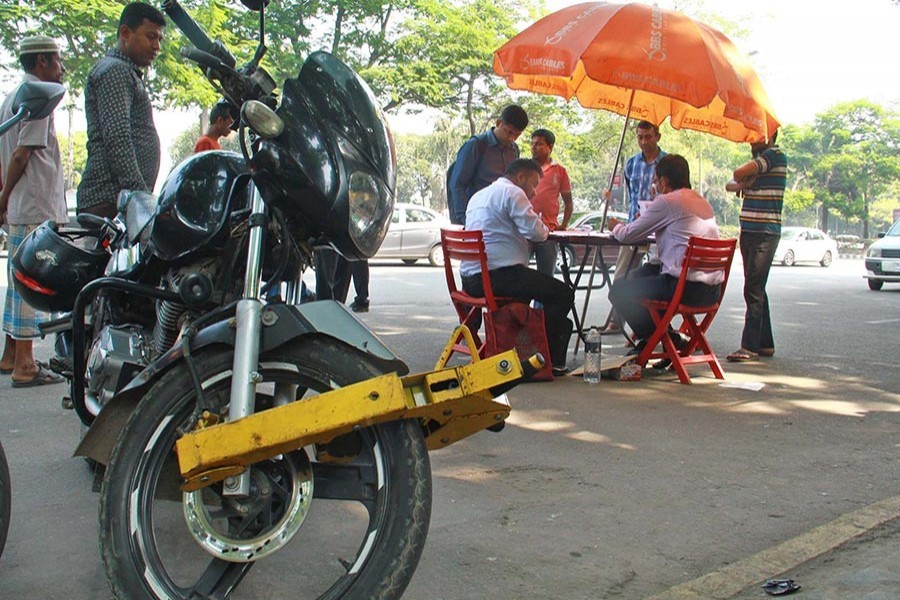It is time for the BRTA (Bangladesh Road Transport Authority) and others concerned to show some actions.
A few road accidents that left some people dead or maimed in Dhaka and some other places across the country have, lately, triggered a lot of media noise and public anger.
It started with Rajib's loss of hand in an accident near Kawran Bazaar a few weeks back. Rajib, a poor college student, is no more. He succumbed to his injuries at a city hospital. But the very picture showing his severed hand caught between two buses stirred up emotion and anger among most people. A few identical accidents have only added fuel to people's emotion.
There have been statements and news articles galore holding rash driving by buses and trucks responsible for this kind of tragic accidents. The BRTA, a government agency responsible for distributing driving licences to motor vehicle drivers, in the face of public criticism, has come out of its usual hibernation and started flexing muscles against 'illegal driving'. Aided by the Dhaka Metropolitan Police (DMP), it has set up mobile courts at some points of the city and started prosecuting the drivers having no valid driving licences. The teenage leguna (human haulers) drivers are getting caught, in most cases. One or two bus drivers are also being arrested and given one month's prison sentence or made to pay fines.
But most people are not at all convinced by the latest BRTA actions. They are familiar with such move, initiated by the BRTA in the past, and its outcome. In fact, the mobile courts now in action would be deactivated as soon as the people's attention on the issue starts fading.
The hard truth is that the authorities have given too much indulgence to transport owners and workers in recent years. The latter have become almost uncontrollable. However, the official indulgence has not come by automatically. Politics has played its part in it. The owners having links with the ruling party do usually dominate the sector and give a damn to the relevant laws and rules. They also extend support to their rogue drivers and other workers in the transport sector.
A review of the routes opened in recent years, growth of bus fleet and ownership pattern would show the real strength of political connections in the transport sector.
There is no denying that lack of awareness among pedestrians and public transport users is also, partly, responsible for continuous rise in road accidents. The government agencies concerned, however, have also failed to create awareness among the people about the need for road safety.
For reasons of road safety, all the parties --- pedestrians, transport operators and traffic police--- have to play their due roles. The system will not work if one of the parties is found uninterested to follow the rules and shoulder its responsibilities.
The parties involved, to be honest, are aware of the possible ways of improving the traffic situation, to a large extent. Enforcement of laws and rules and total adherence to those could be a magic solution. But, unfortunately, the parties do not like to be disciplined and law-abiding. If the situation on the ground remains so rotten, it is hard to expect positive results from any move, no matter how well-crafted it is.


